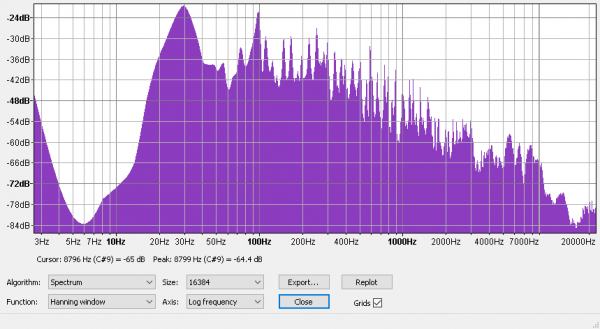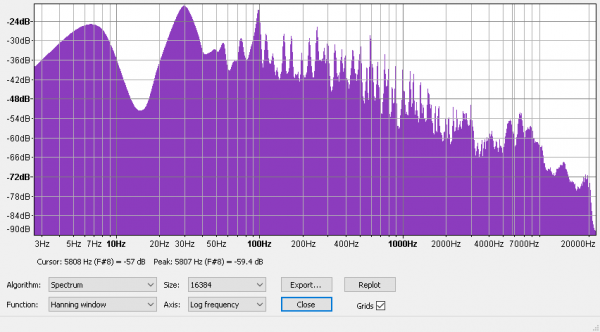Groucho ... a 40hz filter is often used with LP, however ...
example below is a live CD track which was originally recorded to 16bit DAT ...

the same LP rip to CD (not my rip) ...

Notice the infrasonic energy, and the very fact the 30hz peak is retained.
This is but one example, many more exist .... yet to be fair, I can display examples of just the opposite, so as I said, vinyl reproduction is very much a moving target.
example below is a live CD track which was originally recorded to 16bit DAT ...

the same LP rip to CD (not my rip) ...

Notice the infrasonic energy, and the very fact the 30hz peak is retained.
This is but one example, many more exist .... yet to be fair, I can display examples of just the opposite, so as I said, vinyl reproduction is very much a moving target.






